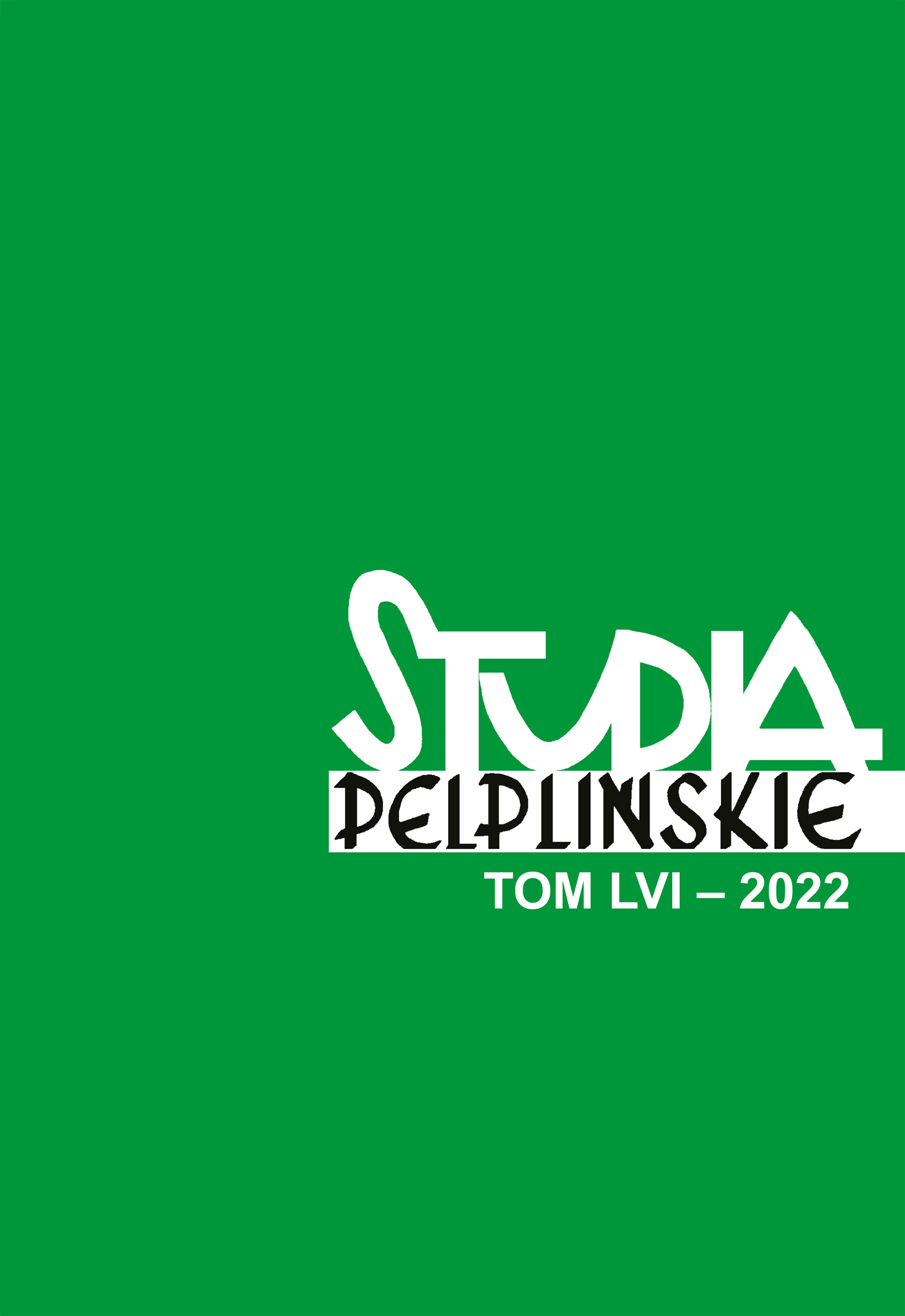POJĘCIE „DYSTANSU” W RELACJI PACJENT – PERSONEL MEDYCZNY I JEGO WYMIAR PERSONALISTYCZNY
DOI:
https://doi.org/10.12775/SPLP.2022.008Schlagworte
dialog, dystans zawodowy, komunikacja, pacjent, personalizm, personel medyczny, uczuciaAbstract
Pobyt osoby chorej w szpitalu jest często momentem jej buntu i niezrozumienia sytuacji. Personel medyczny ma rolę fundamentalną nie tylko leczyć, ale i wejść w dialog z pacjentem, towarzyszyć w akceptacji danej sytuacji. W niniejszej pracy autor wprowadza pojęcie właściwego dystansu jako przestrzeni dialogu między personelem medycznym a pacjentem. Artykuł akcentuje szczególnie charakter personalistyczny dialogu. Tak ujęta relacja chroni człowieka jako osobę, jego człowieczeństwo i godność. Nasze refleksje ukazują konieczność dystansu personelu medycznego z osobą chorą po to, aby relacja między nimi była właściwa i ukierunkowana na dobro osobiste człowieka. Dystans nie jest zatem brakiem uczuć. Jest to przestrzeń właściwego dialogu, opartego na szacunku do osoby chorej, jak i do personelu.
Literaturhinweise
Biesaga T., Dobro pacjenta celem medycyny i podstawą etyki medycznej, „Studia Philosophiae Christianae”, 40(2004) 153-165.
Biesaga T., Pojęcie osoby a jakość życia we współczesnej bioetyce, w: Ocalić cywilizację – ocalić ludzkie życie, red. Z. Morawiec, Kraków 2002, s. 53-64.
Chabros K., Zagrożenia godności terminalnie chorego we współczesnej cywilizacji zachodniej, „Warszawskie Studia Teologiczne”, 26(2013)1, s. 261–284.
Daeppen J.-B., Pourquoi ne peut-on pas prescrire l’arrêt de l’alcool ?, Vademecum d’alcoologie, Paryż 2003.
Drabik-Danis E., Hans-Wytrychowska A., Umiejętność obniżania poziomu lęku u pacjenta chorego przewlekle – bilans korzyści, w: Relacja lekarz – pacjent, zrozumienie i współpraca, red. A. Steciwko, J. Barański, Wrocław 2017, s. 118-131.
Maillé O., La place du sujet en médecine, Montpellier 2013.
Majewska M., Słowo też jest lekiem czyli o komunikacji lekarza z pacjentem,„Zeszyty Prasoznawcze”, 58(2015)2, s. 224-237.
Makara-Studzińska M., Komunikacja z pacjentem, Lublin 2012.
Manoukian A., La relation soignant-soigné, Rueil-Malmaison 2014.
Mercadier C., Le Travail émotionnel des soignant à l’hôpital. Le corps au cœur de l’interaction soignant-soigné, Paryż 2002.
Mizak J., Godność osoby cierpiącej jako podstawowa kategoria aksjologiczna w relacji lekarz – pacjent, „Teologia i Moralność”, 13(2013)1, s. 195–210.
Prayez P., Introduction générale, w: Distance professionnelle et qualité du soi, red. P. Prayez, Rueil-Malmaison 2009.
Prayzez P., Juste distance ou distance injuste, w: Distance professionnelle et qualité du soi, red. P. Prayez, Rueil-Malmaison 2009.
Ricoeur P., Approches de la personne, „Esprit”, 3-4(1990), s. 115-130.
Rusin M., Podmiotowość pacjenta w interakcji fizjoterapeuta – pacjent, „Zeszyty Naukowe Wyższej Szkoły Pedagogiki i Administracji w Poznaniu”, (2007)3, s. 199–209.
Szary S., Znaczenie i godność ludzkiego ciała w praktyce medycznej, „Hygeia Public Health”, 49(2014)2, s. 222–224.
Szewczyk K., O bezsensie i potrzebie konstruowania modeli relacji lekarz – pacjent, „Krytyka Lekarska”, (2009)2–3.
Watson J., Nursing: The Philosophy and Science of Caring, Revised Edition, University Press of Colorado, 2008.
Wilczek-Rużyczka E., Komunikowanie się z chorym psychicznie, Warszawa 2019.
Zembala A., Modele komunikacyjne w relacjach lekarz – pacjent, „Zeszyty Naukowe Towarzystwa Doktorantów UJ – Nauki Ścisłe”, 2(2015)11, s. 35-50.
Downloads
Veröffentlicht
Zitationsvorschlag
Ausgabe
Rubrik
Lizenz
Copyright (c) 2022 Wojciech Gliniecki

Dieses Werk steht unter der Lizenz Creative Commons Namensnennung - Keine Bearbeitungen 4.0 International.
Stats
Number of views and downloads: 920
Number of citations: 0



